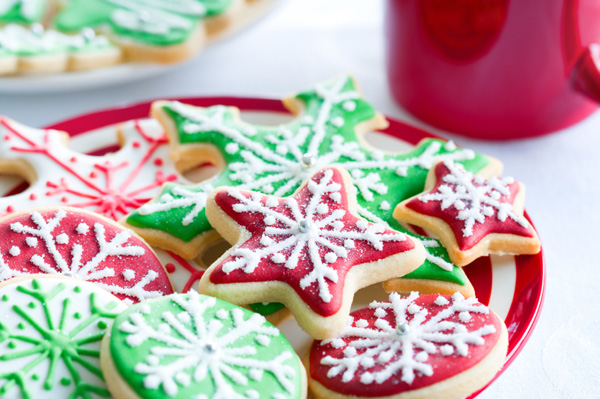How To Survive the Holiday Sugar Rush
There are so many things to love about the holiday season: the decorations, the gaily wrapped gifts, the songs, the traditions, the parties. Along with the parties, however, comes a binge of indulgence in sweets. There’s nothing wrong with the occasional treat, but we do tend to overdo it at this time of year.
In addition to the cakes, pies, cookies, and eggnog, we are also inclined to take in more than our share of other types of comforting carbohydrates, like potatoes and gravy, fried latkes, and soft dinner rolls slathered with butter. These add to our bodies’ sugar load because carbs are converted to glucose (sugar) in the body. This can leave you feeling sluggish and tired (sometimes referred to as a “food coma”) for hours or days after the sugar rush you receive from all that great-tasting food.
While your concierge family practice doctors at MD 2.0 in Jupiter, Florida, don’t wish to encourage a steady diet of carbs and sugar, we understand the impulse to partake in the many seasonal goodies and thought we’d offer a few tips on how to get your body back on track afterward.
First, a little background
Why do we find it so hard to resist sugar and highly caloric foods this time of year? For one thing, many of the treats we encounter are only available during the mid-winter holidays, which makes us want to enjoy as much of them as we can while we can. For another, sugar consumption releases dopamine—a type of opioid—in the brain, which triggers the brain’s pleasure center. Thus, beyond the flavor, we’re also rewarded with a literal “high” from sugary foods. That also explains the body’s “crash” afterward, as the effects of the dopamine wear off, which then makes us want more sugar to replicate the pleasurable effects.
Start with some balance
If you can remember to eat a bit of protein before you head for the cookie platter, you’ll head off some of the spikes in blood sugar that results from eating sweets on an empty stomach. A few cubes of cheese, a handful of nuts, or a meatball or two will provide a kind of cushion against the onslaught of sugar in your bloodstream.
Stick to your favorite treats
Because it’s the holidays, there will be the types of sweets available only around this time of year: sugar-coated pecans, Yule logs, eggnog, sufganiyot, etc. Those are the ones you should indulge in, and skip the ordinary things you can get year-round, such as potato chips and dips, pretzels, and so forth. That way you save on a few calories and carbs while allowing yourself to enjoy the treats you do eat with a bit less guilt.
End with more balance
You’re not a terrible person just because you ate more of the sweet stuff than you intended to, and you don’t have to starve yourself as a result. In fact, you should keep up your calorie intake in the days following a binge—just make sure it’s a menu of healing-type foods: low-fat proteins, high-fiber vegetables, beans, nuts, and so forth. This will give your body the proper fuel to recover from the sugar onslaught, and help you feel better sooner.
Get moving
After a long stint at the dessert table, there is a way to have your cake and eat it, too. Instead of collapsing on the sofa as you’ll be tempted to after all that sugar, use that “high” before the crash sets in. The glucose coursing through your bloodstream can be used to power your muscles instead of storing it as fat, so take a brisk walk instead. Or talk everyone into a quick game of touch football or softball.
Good health isn’t about living a life of austerity and denying yourself the small joys that make life worth living. It’s about finding a balance between the occasional overindulgence and making smarter choices the rest of the time. If you have any questions about healthful ways of eating, be sure and talk to us. We can help you separate the facts from the myths.

